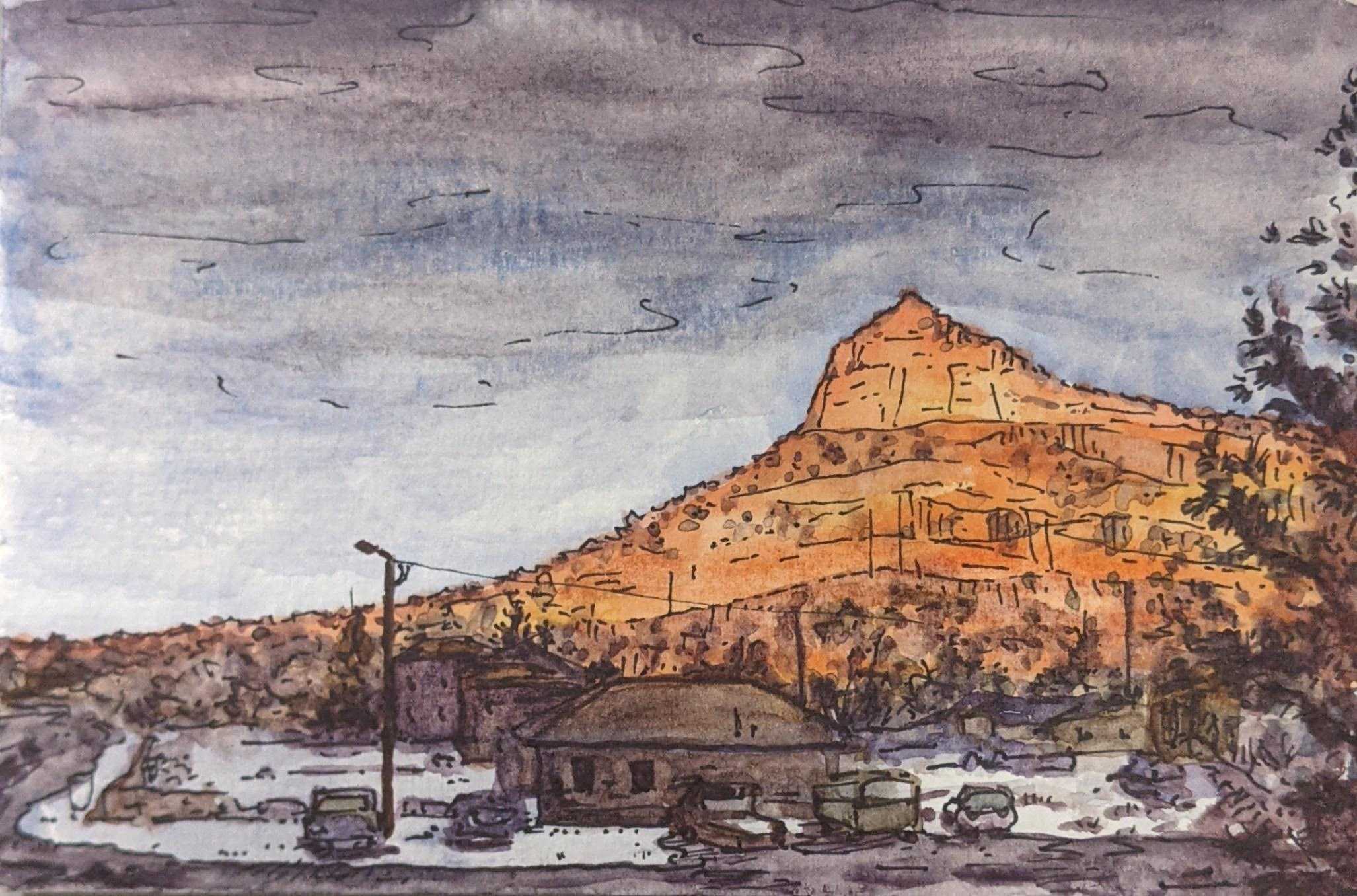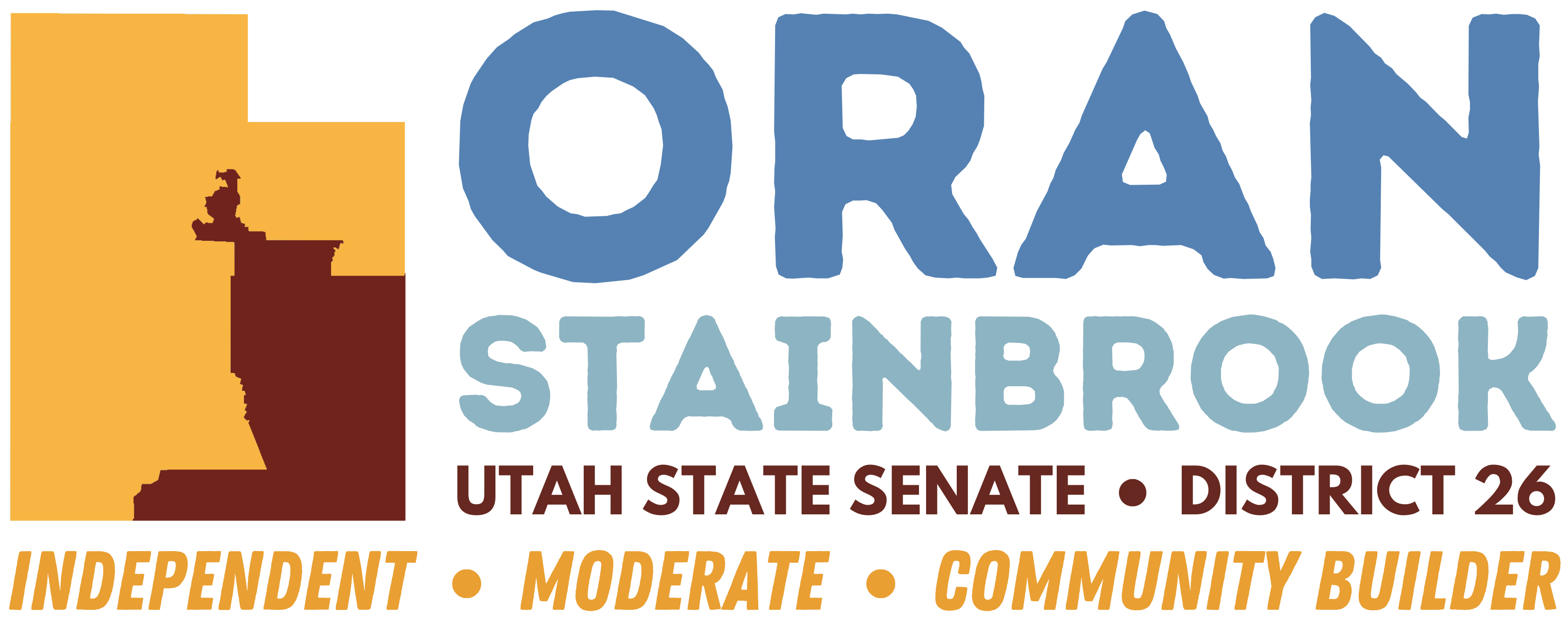a vote for choice
Utah Deserves Options:
Support Our Campaign for the Ballot!

Meet Oran Stainbrook
Born and raised in Utah, I’m a first-generation college graduate with a Bachelor’s degree in Architecture. I have extensive leadership experience along with training in mediation and conflict resolution. I have a long-standing commitment to public service and volunteerism, experience in real estate development and neighborhood revitalization, and a deep understanding of the challenges and dynamics of rural communities. I believe my professional background and skillset make me uniquely qualified to represent our district’s diverse constituency of voters in the Utah State Senate.
Platform
![]()
HOUSING & COMMUNITY DEVELOPMENT
Affordable housing and a path to homeownership are the foundations of the American Dream. Housing insecurity has created a domino effect of other problems including our substance use disorder epidemic and lack of civic engagement. It exacerbates poverty and discourages people from starting families and being integrated members of their communities.
Increasing homeownership and walkability in our towns will generate safer, richer, more healthy and beautiful neighborhoods for everyone.
- Relax zoning regulations and building codes that prohibit smaller, more affordable homes.
- Cooperate with developers and municipalities to encourage more walkable, community-oriented development.
- Protect the supply of detached single family homes from foreign and corporate investors.
- Advocate for fair rent control measures to protect tenants from excessive increases.
![]()
JOBS & INDUSTRY
It’s imperative that we attract new businesses and a wider variety of job opportunities to rural Utah to become more economically resilient. With Artificial Intelligence set to further disrupt our economy, we must anticipate change and be prepared to adapt.
We should upgrade our coal-fired power plants by implementing carbon capture/sequestration in order to maintain the supply of affordable, reliable energy, good jobs and an industrial tax base. At the same time, we can look ahead to the long-term future and be making investments in small-scale nuclear that will allow us to transition to a more powerful, clean, inexpensive and inexhaustible supply of energy.
Mines and railroads built this country and in rural Utah we’re unapologetically proud of that fact. But it was a diverse collection of hard-working immigrants that gave their lives to lay the tracks and dig the mines. Our greatest asset as a community has always been and continues to be our human capital and industriousness; our pioneering spirit, resiliency and adaptability.
Utah’s open-source, creative culture is attractive to young entrepreneurs, artists and remote tech workers. We would be wise to attract additional talent, to promote and grow our art and film industries, while also continuing to develop our public lands for enhanced outdoor recreation opportunities and increased tourism revenues.
- Create more favorable conditions to attract new industry and grow small businesses.
- Regulate AI tech and tax AI-based businesses to develop contingency plans and manage the resulting economic fallout.
- Develop co-working spaces and incubators to enhance a culture of collaboration and innovation.
- Offer incentives to recruit remote tech workers and young entrepreneurs to move to rural places.
![]()
SUBSTANCE USE DISORDER & MENTAL HEALTH
The substance use disorder epidemic has claimed many lives within our community and continues to be a major challenge. We need to address some of the root causes of SUD, namely housing insecurity, poverty, and a cultural crisis of disconnection, while also providing resources and support for prevention, treatment and recovery at every stage.
Pharmaceutical companies should be held responsible for unnecessarily pushing addictive opiates on patients, and these medicines should be administered with better medical oversight when necessary.
- Bring awareness and attention to the source of the SUD epidemic to help solve underlying issues.
- Advocate for harm reduction strategies and support organizations involved in treatment and recovery.
- Expand pathways for reintegration with society to those in recovery who are rebuilding their lives.
- Design better, more resilient and functional communities that prioritize people and public health.
“Kenilworth Sunrise” – a view from the front porch of the Store in Carbon County, Utah. Watercolor by Oran Stainbrook.

“Our area needs his innovation, drive, tenacity, determination, and people-oriented/driven motivation. Oran brings an impressive background with him and is literally not afraid to get his hands dirty. I’ve seen the way he has taken dilapidated, crumbling, and in-despair buildings and made them functional and livable again, I’ve seen the quality of time and effort into his artistic endeavors, and I’ve also seen how Oran can truly toe the line with regard to small town politics and rise above them to make his own decisions. He’s also pretty funny and down to earth, genuine, and resourceful. He will do amazing things on the hill for our communities.”
Amanda M.
“I have watched him befriending elderly neighbors and helping them with home repairs and offering friendship, helping to establish community gardens, and working for Habitat for Humanity. He is more interested in compromise to get things done for the good of the people. He’s not polarized. We need more people like him to bring us together.”
Kerry S.
